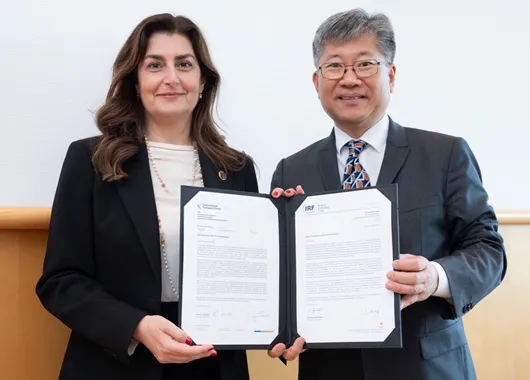More than 40 partners and supporting organisations joined the International Transport Forum (ITF) at the OECD for the launch of a major global initiative towards carbon-free transport. Transport activity currently contributes 23 per cent of global CO2 emissions from fossil fuels, with the share expected to rise, says the ITF.
The Decarbonising Transport project aims to: Provide a common assessment tool based on a comprehensive modelling framework supported by dialogue with key stakeholders; Enable countr
May 23, 2016
Read time: 2 mins
More than 40 partners and supporting organisations joined the 998 International Transport Forum (ITF) at the OECD for the launch of a major global initiative towards carbon-free transport. Transport activity currently contributes 23 per cent of global CO2 emissions from fossil fuels, with the share expected to rise, says the ITF.
The Decarbonising Transport project aims to: Provide a common assessment tool based on a comprehensive modelling framework supported by dialogue with key stakeholders; Enable countries and other stakeholders to translate roadmaps into actions that deliver results grounded in quantitative data; and support actions to achieve the UN sustainable development goals along with the decarbonisation of the transport sector.
The project is supported by a wide range of stakeholders, including private sector companies, multilateral development banks, intergovernmental organisations, sector associations, NGOs and research institutions. It is anchored in the ITF’s Corporate Partnership Board, the organisation’s platform for discussions with the private sector.
According to secretary-general José Viegas, the challenge is to reduce transport CO2 “without sacrificing the access and opportunities offered by transport, keeping our societies together and making our economies turn.
“The inclusive nature of this project is a central feature and key factor for success of this project,” said Viegas. “It makes me proud that in only four months more than 40 partners and supporting organisations are committing to bringing knowledge, data, networks and financial contributions to the Decarbonising Transport project. I welcome other organisations, companies and institutions to join.”
The preliminary results of the project will be presented at the next ITF Summit in May 2017. The work will be completed by 2018/19, in time for the first round of reviews of the COP21 decarbonisation targets in 2020.
The Decarbonising Transport project aims to: Provide a common assessment tool based on a comprehensive modelling framework supported by dialogue with key stakeholders; Enable countries and other stakeholders to translate roadmaps into actions that deliver results grounded in quantitative data; and support actions to achieve the UN sustainable development goals along with the decarbonisation of the transport sector.
The project is supported by a wide range of stakeholders, including private sector companies, multilateral development banks, intergovernmental organisations, sector associations, NGOs and research institutions. It is anchored in the ITF’s Corporate Partnership Board, the organisation’s platform for discussions with the private sector.
According to secretary-general José Viegas, the challenge is to reduce transport CO2 “without sacrificing the access and opportunities offered by transport, keeping our societies together and making our economies turn.
“The inclusive nature of this project is a central feature and key factor for success of this project,” said Viegas. “It makes me proud that in only four months more than 40 partners and supporting organisations are committing to bringing knowledge, data, networks and financial contributions to the Decarbonising Transport project. I welcome other organisations, companies and institutions to join.”
The preliminary results of the project will be presented at the next ITF Summit in May 2017. The work will be completed by 2018/19, in time for the first round of reviews of the COP21 decarbonisation targets in 2020.








